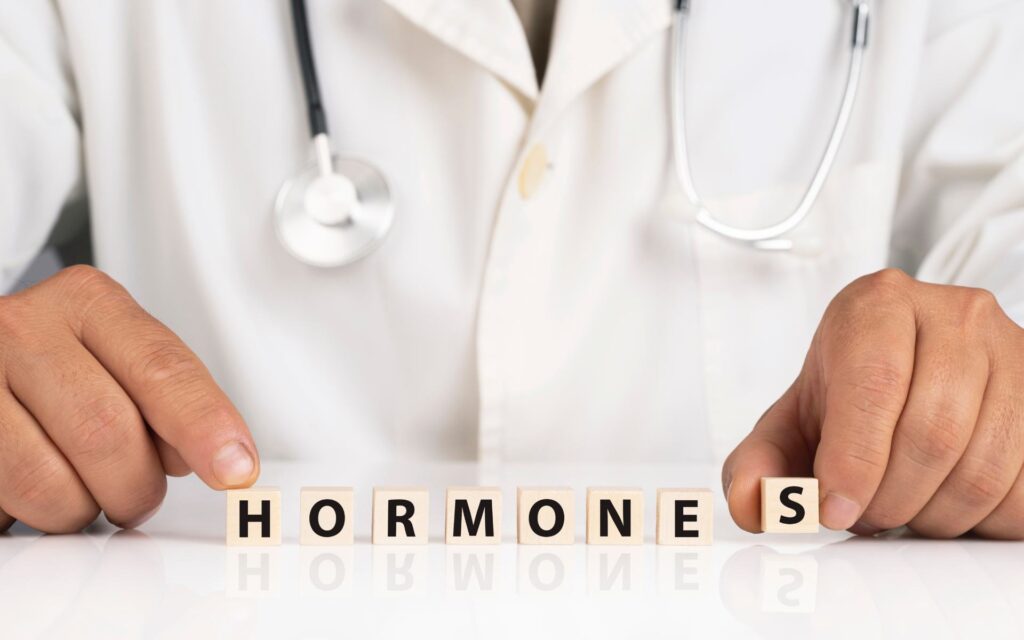
Hormonal balance plays a crucial role in women’s overall health and well-being. When hormones are out of balance, it can lead to various health issues that impact both physical and mental health. Understanding the symptoms, causes, and solutions to hormonal imbalances is key to achieving optimal wellness.
What Are Hormones and Their Role in Women’s Health?
Hormones are chemical messengers produced by glands in the endocrine system. They regulate numerous bodily functions, including metabolism, mood, reproduction, and energy levels. The primary hormones that influence women’s health include:
- Estrogen and Progesterone: Regulate the menstrual cycle and reproductive system.
- Testosterone: Present in small amounts but plays a role in muscle strength and libido.
- Cortisol: The stress hormone, responsible for the body’s response to stress.
- Thyroid Hormones: Control metabolism and energy.
Common Symptoms of Hormonal Imbalance in Women
Hormonal imbalances manifest in a variety of ways. Recognizing these symptoms is essential for early intervention:
1. Irregular Menstrual Cycles
Fluctuating levels of estrogen and progesterone can cause missed, irregular, or heavy periods.
2. Fatigue
Chronic fatigue may be a sign of thyroid hormone imbalances or adrenal gland dysfunction.
3. Mood Swings and Depression
Imbalances in estrogen, progesterone, or cortisol can lead to anxiety, irritability, and depression.
4. Weight Gain or Difficulty Losing Weight
Hormonal disruptions, especially in insulin or thyroid hormones, can lead to weight gain or resistance to weight loss.
5. Hair Thinning or Hair Loss
Androgenic hormones can cause hair thinning or hair loss, particularly around the scalp.
6. Sleep Issues
Low progesterone or elevated cortisol levels can contribute to insomnia or poor-quality sleep.
7. Acne
Hormonal imbalances may lead to adult acne, especially around the chin and jawline.
8. Low Libido
Decreased levels of estrogen or testosterone can cause a drop in sexual desire.
Common Causes of Hormonal Imbalance
Several factors contribute to hormonal imbalances in women. Identifying the cause is essential for developing a treatment plan.
1. Stress
Chronic stress leads to elevated cortisol levels, which can suppress other hormone functions.
2. Poor Diet
A diet high in processed foods and sugars can negatively impact insulin and sex hormone levels.
3. Birth Control Pills
Oral contraceptives alter natural hormone levels, sometimes causing imbalances.
4. Menopause
During menopause, the body naturally decreases the production of estrogen and progesterone.
5. Thyroid Disorders
Hypothyroidism and hyperthyroidism are common causes of hormonal imbalances.
6. Polycystic Ovary Syndrome (PCOS)
PCOS is a hormonal disorder that can lead to irregular periods, infertility, and weight gain.
7. Lack of Physical Activity
Sedentary lifestyles can disrupt hormone production and contribute to insulin resistance.
Health Issues Linked to Hormonal Imbalances
Unchecked hormonal imbalances can lead to chronic health conditions, including:
1. Infertility
Hormonal imbalances in estrogen and progesterone can make conception difficult.
2. Osteoporosis
Low estrogen levels after menopause increase the risk of bone loss and fractures.
3. Cardiovascular Disease
High cortisol and low estrogen levels are linked to an increased risk of heart disease.
4. Type 2 Diabetes
Insulin resistance caused by hormonal imbalances may develop into diabetes.
5. Metabolic Syndrome
A cluster of conditions—including high blood pressure, high blood sugar, and excess abdominal fat—can result from hormonal issues.
Diagnosis and Treatment of Hormonal Imbalance
Accurate diagnosis is the first step toward effective treatment.
1. Hormone Testing
Blood tests can measure levels of key hormones such as estrogen, progesterone, testosterone, and thyroid hormones.
2. Lifestyle Changes
- Dietary Adjustments: Incorporating a balanced diet rich in whole foods can help regulate hormone levels.
- Exercise: Regular physical activity improves insulin sensitivity and promotes hormonal balance.
- Stress Management: Mindfulness practices like yoga, meditation, and deep breathing can lower cortisol levels.
3. Medications and Supplements
- Hormone Replacement Therapy (HRT): Used to manage symptoms of menopause or low estrogen levels.
- Thyroid Medications: For hypothyroidism or hyperthyroidism.
- Insulin-Sensitizing Drugs: To manage insulin resistance in conditions like PCOS.
- Nutritional Supplements: Vitamins and minerals, such as vitamin D, magnesium, and omega-3 fatty acids, can support hormone health.
4. Alternative Therapies
Some women find relief through acupuncture, herbal remedies, or bioidentical hormone therapy.
Preventing Hormonal Imbalance
Taking proactive steps can help prevent or manage hormonal imbalances:
- Maintain a Balanced Diet: Focus on whole foods, healthy fats, and lean proteins.
- Exercise Regularly: Engage in a combination of cardio and strength training.
- Get Adequate Sleep: Aim for 7-9 hours of sleep per night to support hormone production.
- Manage Stress: Practice stress-relief techniques to lower cortisol levels.
- Stay Hydrated: Proper hydration is essential for hormone regulation.
- Regular Check-Ups: Routine medical check-ups can help catch hormonal imbalances early.
When to Seek Medical Help
If you experience persistent symptoms like irregular periods, unexplained weight changes, or mood disturbances, consult a healthcare provider. Early intervention can prevent complications and improve your quality of life.
Conclusion
Hormonal imbalances can significantly impact women’s daily lives, but with the right care and lifestyle changes, balance can be restored. At Smart Clinics, we offer comprehensive care for women’s health, including hormone testing and treatment. Visit Smart Clinics or find us on Google Maps to take control of your hormonal health today!





